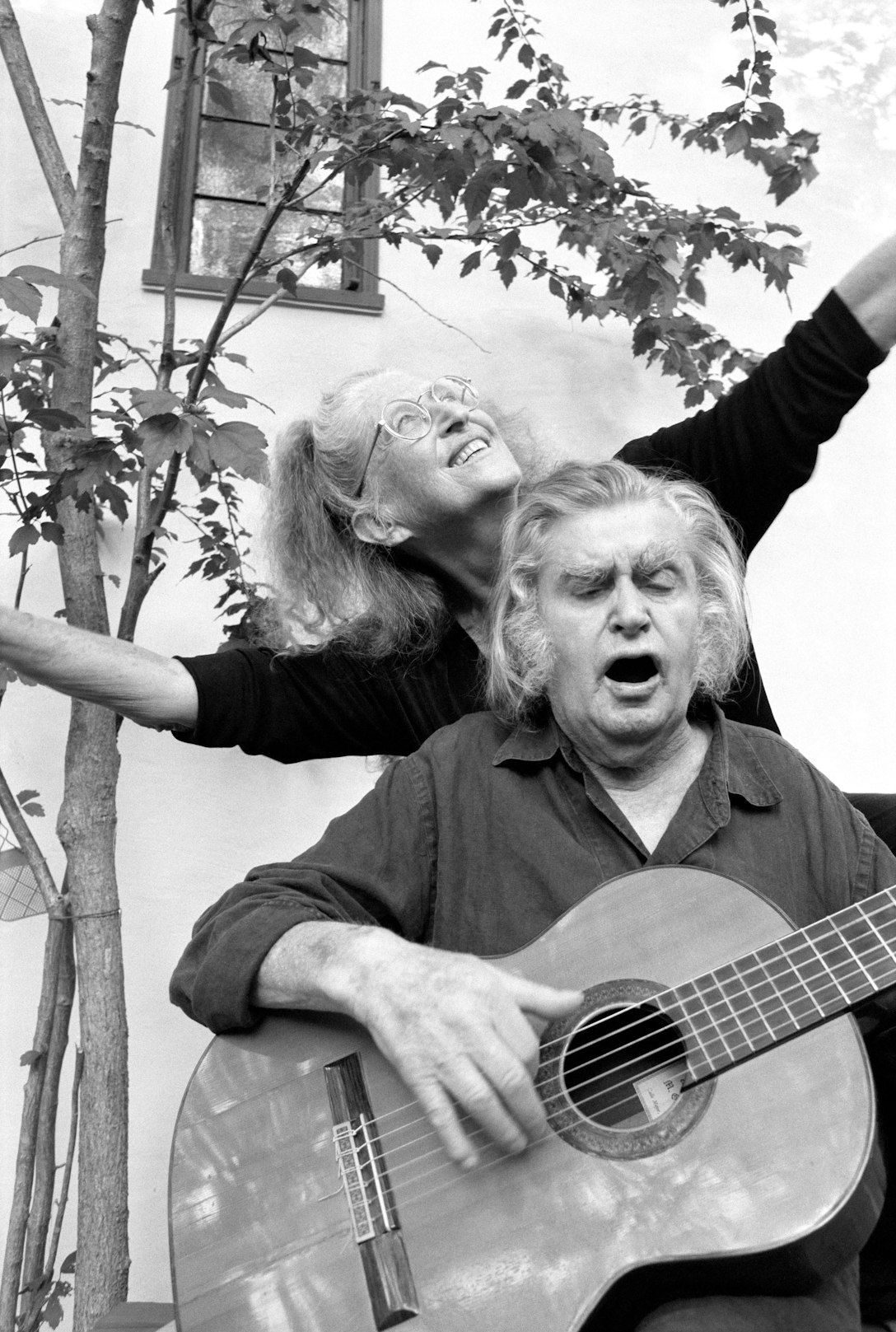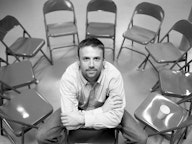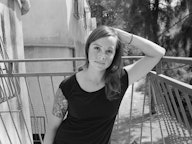
Fanchon and Bonia Shur
Cincinnati, Ohio, USA
A MOMENT OF HOLINESS
— Fanchon —
I’m going into this place with this grand man speaking far away with the cape over him...I’m sitting with this buxom woman with giant breasts and smelling wafts of perfume. And I’m sitting there and I’m laying on her bosom. And I’m hearing, ‘he,’ and I’m saying, ‘This does not compute.’
— Bonia —
Composing the last prayer of my ‘Hallel Psalms’ I made 40 to 50 sketches, all kinds of variations, until 4 o’clock in the morning. Then I found the right one. In that moment I felt elation. People may call it God, some call it inspiration. Whatever—it was a moment of holiness. But on a daily basis, I don’t pray.
Daniel’s Reflection
One of the great blessings of my life is that I came to know Fanchon and Bonia Shur. We were introduced by my friend, Rabbi Leah Cohen, when she was studying to become a rabbi at Hebrew Union College in Cincinnati. Bonia was one of the great Jewish liturgical composers of the past century, and for 30 years taught rabbinical students about liturgical prayer. His compositions are sung around the world, especially “Kedusha” and “Hallel.” But his younger years were spent in the socialist HaShomer HaTzair youth movement and, before that, in the Russian Army in World War II. He emigrated to Israel in 1949 and to the United States in 1960.
The love of his life, Fanchon Shur, is a world famous choreographer, dancer, and movement therapist. Fanchon’s career has been filled with a series of provocative and healing dance pieces including the one that opened my heart to her work, “Flight, Fight, Freeze!” which used the play of animals to teach us humans about how to recover from trauma. I was very fortunate to experience movement therapy with Fanchon over a period of several months which taught me to express fears and hopes directly through my body, not just my brain. One of the great moments in my interview with Bonia was when I asked him if he believed in God, to which he replied he did not. So I asked how he explained being one of the great liturgical composers of this generation if he did not believe in God. He replied, “I feel listened to.”
Fanchon, Bonia, and I once created a Jewish kirtan in Cincinnati so that we might bring a Jewish lens to the sacred chanting of Eastern traditions. Bonia showed up with eight new chants he wrote for our first night of the kirtan! But he later got frustrated with our efforts and declared, “Judaism does not need a kirtan!”
Fanchon and Bonia’s love for one another and passion for life and art was beyond any ordinary love and passion I’d ever seen. Bonia died in 2012 at the age of 89. Fanchon continued to dance and teach and be the great presence she is in the universe. She experienced a stroke in recent years and has been a true fighter in her rehabilitation.
How grateful I am that I was able to interview them for Portraits in Faith so I can share these two wonderful individuals with the rest of the world.
Explore the portraits by theme
- happiness
- grief
- addiction
- sexuality
- sobriety
- transgender
- alcoholism
- suicide
- homelessness
- death
- aggression
- cancer
- health
- discipline
- abortion
- homosexuality
- recovery
- connection
- enlightenment
- indigenous
- depression
- meditation
- therapy
- anger
- forgiveness
- Doubt
- interfaith
- worship
- salvation
- healing
- luminaries

